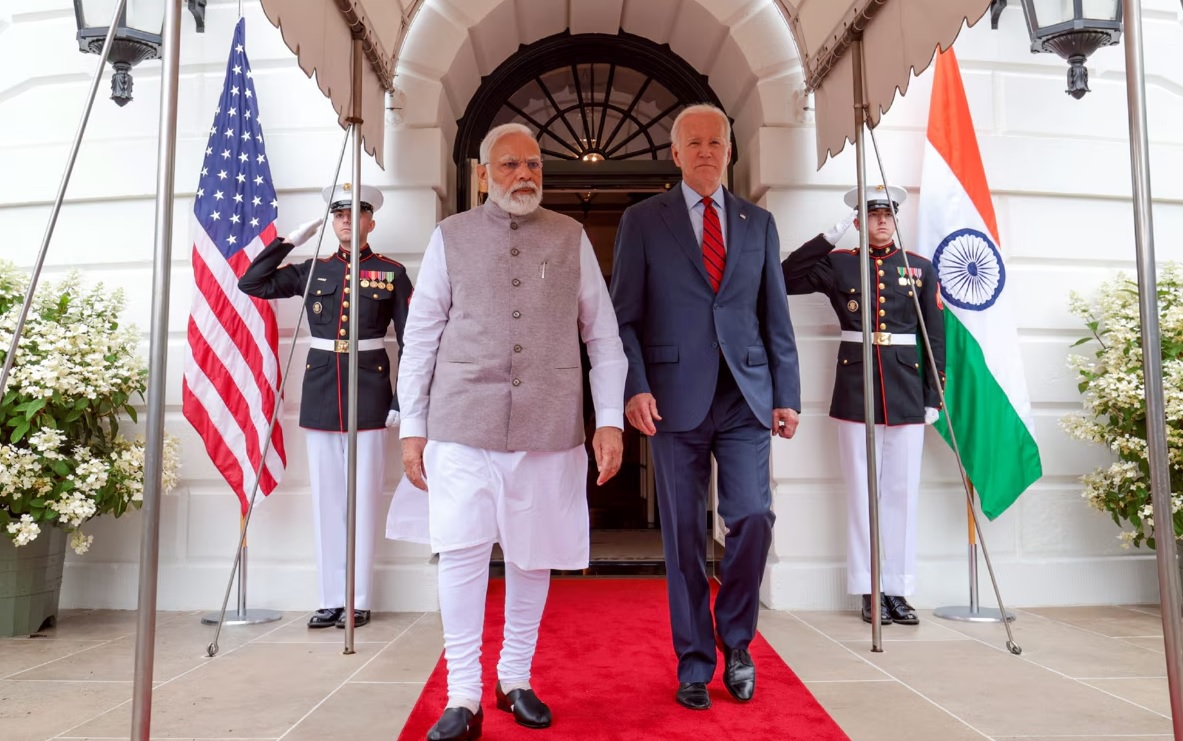Bill Introduced to Strengthen US-India Partnership and Counter China's Influence in Indo-Pacific

In a significant move to bolster the strategic alliance between the United States and India, Senator Marco Rubio introduced a bill in Congress aimed at treating India on par with major U.S. allies like Japan, Israel, South Korea, and NATO members. The proposed legislation, known as the U.S.-India Defense Cooperation Act, seeks to enhance technology transfers, support India in countering threats to its territorial integrity, and bar Pakistan from receiving security assistance if it sponsors terrorism against India.
Rubio emphasized the urgency of countering China's aggressive expansion in the Indo-Pacific region. "Communist China continues to aggressively expand its domain in the Indo-Pacific region, all while it seeks to impede the sovereignty and autonomy of our regional partners. It’s crucial for the U.S. to continue its support in countering these malicious tactics. India, along with other nations in the region, is not alone," he stated.
The bill underlines the critical importance of the US-India partnership in countering China's influence. It calls for a comprehensive enhancement of diplomatic, economic, and military relations with India. Among its key provisions, the bill proposes a policy of supporting India in responding to threats to its territorial integrity, providing necessary security assistance, and expanding cooperation in defense, civil space, technology, medicine, and economic investments.
A notable aspect of the bill is its provision for a limited exemption for India from the Countering America's Adversaries Through Sanctions Act (CAATSA) sanctions. This exemption would apply to India's purchase of Russian military equipment, which is currently in use by the Indian armed forces. The bill asserts that expeditious consideration of certifications for selling defense articles, services, and major defense equipment to India aligns with U.S. interests and promotes peace and stability in the region.
Furthermore, the bill proposes to treat India on the same level as other major U.S. allies regarding technology transfers. It authorizes the Secretary of State to enter into a memorandum of understanding with India to increase military cooperation, expedite the provision of excess defense articles to India for two years, and expand International Military Education and Training Cooperation with New Delhi.
An additional requirement of the bill is for a report to Congress on Pakistan's use of offensive force, including terrorism and proxy groups, against India. It mandates that Pakistan be barred from receiving security assistance if found to have sponsored terrorism against India.
While the bill faces a challenging path in a divided Congress during an election year, it reflects a strong bipartisan support for strengthening the US-India relationship. Should it not pass in the current session, there is a possibility of reintroduction in the next Congress.
This bill marks the first time such a comprehensive, India-centric legislation has been introduced in the U.S. Congress. By proposing to elevate India to the status of a major U.S. ally, exempting it from CAATSA sanctions, and imposing sanctions on Pakistan for terrorism, the bill aims to solidify a strategic partnership that is vital for maintaining balance and stability in the Indo-Pacific region.


